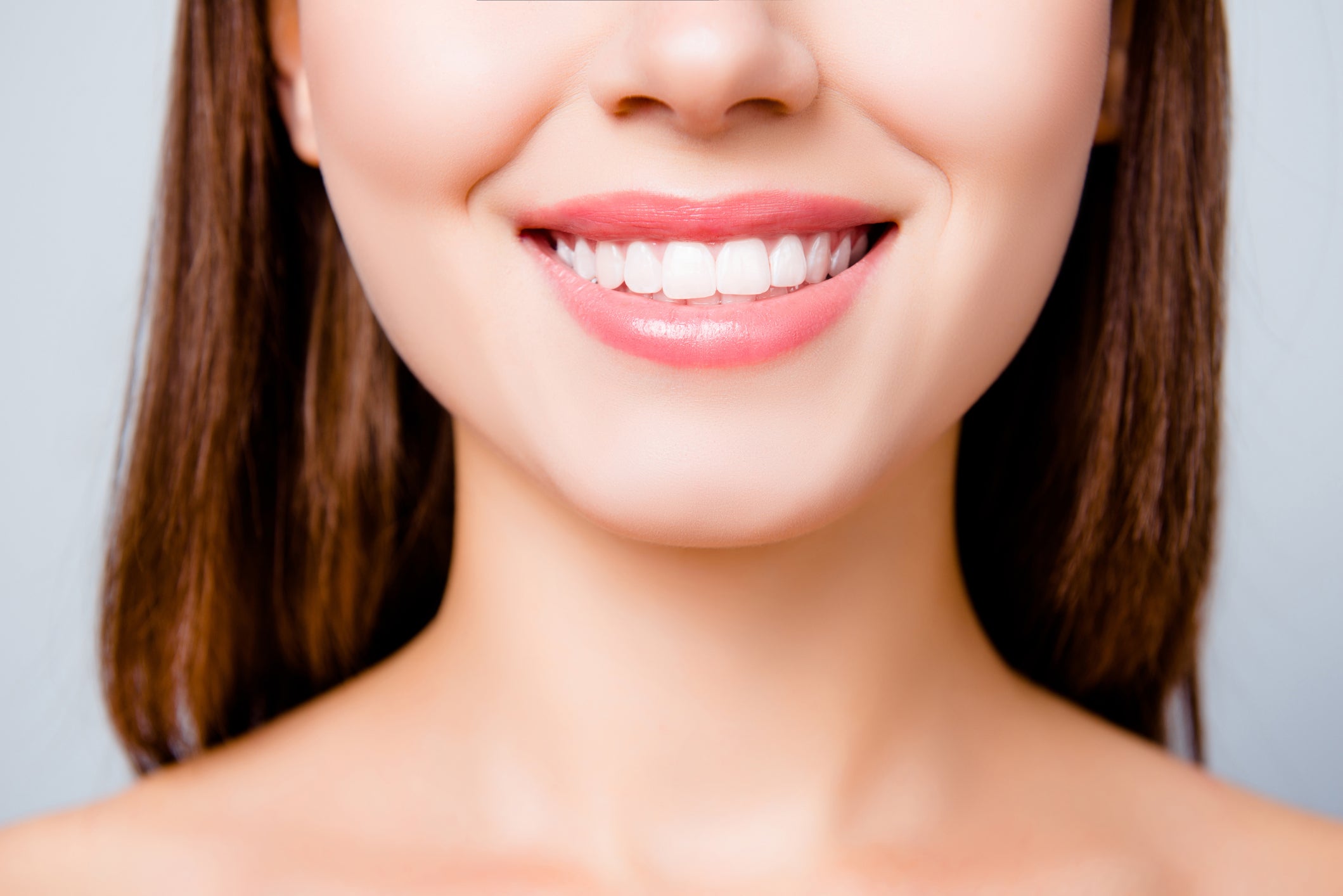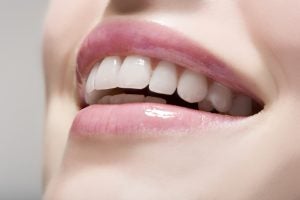-
Why You Should Consider Sedation Dentistry

Sedation Dentistry is an Essential Part of Dedicated Dental Care
A positive patient experience is an important part of excellent dental care. Fear of the dentist prevents too many from taking care of their teeth in a timely manner. Dentists are dedicated to helping their patients feel welcome, comfortable, and enthusiastic about improved oral health and aesthetics through sedation dentistry techniques. Sedation dentistry can eliminate fear before or during treatment!
By the Numbers
An estimated 30% of adults avoid the dentist due to fear. That’s a lot! For many people, they could be suffering needlessly from oral diseases despite modern technological advances that offer them relief and comfort with their dental health care needs. But researchers estimate 75 million US citizens don’t seek dental care that can easily be treated by conscious sedation dentistry or general anesthesia.
What is Sedation Dentistry?
Many people refer to sedation dentistry as “sleep dentistry” but the nickname is inaccurate since the patient does not actually sleep during treatment. Sedation dentistry is a form of dental treatment that significantly reduces pain and makes procedures easier to tolerate.
This process usually involves giving patients time-release injections or intravenous anesthesia, so they can relax during their procedure without being bothered by the sight or sound in any way.
Eight Benefits of Sedation Dentistry
Sedation dentistry is a great option for patients who are afraid or anxious about visiting the dentist. It allows them to receive routine oral care without feeling threatened. It allows their minds to relax during procedures while under close supervision from providers trained in sedation techniques.
Studies have shown that this form of treatment often results in less treatment time compared to those not under sedation. Other benefits of sedation dentistry include:
- Makes the appointment time go by faster.
- Reduces your dental anxiety during and before treatment.
- Encourages you to make your preventive appointments.
- Reduces the strength of your gag reflex.
- Minimizes pain during treatment.
- Helps you sit still for longer procedures.
- Improves your overall health as you better your oral health.
- Offers different strengths of sedation dentistry for ultimate comfort.
Park 56 Dental is IV-certified and licensed by the American Dental Association to deliver sedation dentistry. Our specialty training by the State Board of Dental Examiners allows us to administer controlled medications to foster a comfortable, pain-free experience.
Contact us today at (646) 679-3989 to learn the type of sedation dentistry that is best for you.
-
How to Care for Yourself After a Dental Procedure

Root canals, tooth extractions, and dental implants are common smile restorations that require some recovery time. Choosing an experienced oral surgeon is the first step toward ensuring a comfortable recovery.
At Park 56 Dental, we offer sedation dentistry to make your time in the dentist’s chair as comfortable as possible. We also review the recommended aftercare with you before you undergo any procedure, so you know exactly what to expect during your recovery. And if you have any urgent questions for us, rest assured that we answer emergency calls 24 hours a day.
Here are some general aftercare tips we recommend to take care of yourself after a dental procedure.
- Take it easy: Take time off school or work and rest at home. Avoid physical exertion for two to three days, and keep your head propped up with pillows to reduce inflammation.
- Apply ice packs: Ice helps to numb any localized pain and brings the swelling down. Throughout the first recovery day, apply a towel-wrapped ice pack for 15 minutes on, 15 minutes off.
- Leave gauze pads in place: Wait for three or four hours to remove any gauze pads your oral surgeon put in your mouth. This helps minimize bleeding and helps the surgical area clot properly.
- Eat soft food: Stick to a liquid or soft-food diet for a few days. Chilled soup, mashed potatoes, scrambled eggs, yogurt, smoothies, milkshakes, and ice cream are all good options.
- Avoid hot foods and drinks: Wait until the local anesthesia wears off completely to eat or drink anything hot so you don’t accidentally burn your tongue or the roof of your mouth.
- Don’t drink through a straw: Suction in the mouth can dislodge the blood clot from the treated area, leading to a painful condition called dry socket. To prevent this, don’t drink from a straw for three days after oral surgery.
- Take medication: Over-the-counter pain relievers can help make your recovery more comfortable. If your oral surgeon prescribes antibiotics, take those as directed as well.
- Rinse with salt water: 24 hours after your procedure, rinse gently with warm saltwater. A good ratio is one-half teaspoon salt per one-half cup of water. Rinse after every meal and snack to help remove food particles from around the surgical area.
- Brush carefully: Avoid brushing the treated area until it has fully healed, but continue to brush the rest of your teeth.
- Don’t smoke or drink alcohol: These habits can interfere with the healing process, so avoid them for at least 24 hours. Better yet, quit smoking and always limit your alcohol intake to improve your overall health.
If you’re looking for skilled dental care and oral surgery in NYC, you’ve come to the right place. Park 56 Dental has been voted NYC’s best dentist, so why would you go anywhere else for your next dental procedure? To learn more about our services, please call us at (212) 826-2322 or contact us online today.
-
10 Ways to Prevent Tooth Enamel Loss

Enamel is the semi-transparent outer layer of your teeth that protects the more sensitive dentin and pulp beneath from the acids, chemicals, and temperature extremes your mouth endures when you eat and drink. Even though enamel is the hardest substance in the human body, daily wear and tear can eventually cause the surface of your teeth to wear away. Once you lose tooth enamel, it’s gone for good, so it’s important to do everything you can to protect it! Here’s how.
- Limit acidic foods and drinks: When you eat anything acidic, your tooth enamel softens temporarily and loses some of its mineral content. Your saliva slowly balances out the acidity in your mouth, but if this acid attack happens too often, your mouth may not have time to repair itself before some enamel is brushed away. To prevent this, cut back on alcohol, coffee, tea, soda, sports drinks, tomato sauce, and sour candy.
- Eat less sugar: The bacteria in your mouth feed on sugar, producing acid as a byproduct. This is why juice, candy, and other sweet foods are so bad for your teeth.
- Finish your meal with dairy: Enjoying a glass of milk or a piece of cheese at the end of your meal helps rebalance the acidic pH in your mouth.
- Rinse immediately: If you have a hankering for something sweet or acidic, reduce the damage by rinsing your mouth with water once you finish eating.
- Chew sugar-free gum after meals: Chewing gum stimulates saliva flow, which helps remineralize your enamel. Plus, mint gum freshens your breath, making it a win-win.
- Wait an hour to brush: It may sound counterintuitive, but you shouldn’t brush your teeth right after eating. This is when your enamel is weakest, so wait until it has time to harden again before brushing.
- Brush gently: Unless your dentist recommends otherwise, use a soft-bristled toothbrush. Then, brush gently to remove food particles and plaque without scrubbing enamel away.
- Brush with fluoride toothpaste: Fluoride has the amazing ability to remineralize your teeth, strengthening enamel in the process. That’s why it’s so important to use fluoride toothpaste and mouthwash.
- Wear a mouthguard: Nighttime tooth grinding can wear down your enamel. Ask your dentist about getting a custom mouthguard to protect your teeth while you sleep.
- Work with your dentist: Ultimately, the best way to keep your enamel intact is to visit the dentist regularly. A dental professional can spot early signs of erosion and recommend fluoride treatments, prescription toothpaste, and other personalized solutions to help you preserve your smile.
Ready to team up with the best dentist in New York? Look no further than Park 56 Dental! We can help you prevent tooth enamel loss and recommend dental restorations if your smile needs a boost. All the while, you’ll enjoy personalized, quality dental care in a spa-like environment. To get started, please call us at (212) 826-2322 or contact us online to request your free consultation.
-
How to Find the Perfect Dentist

When you’re looking for a dentist, the number of options available can be overwhelming. Factor in anxiety about going to the dentist, and it’s easy to see how finding a dentist could seem like a daunting task. Don’t worry! We’ve got some tips to help you find the perfect dentist for you and your family.
- Ask people you trust. Word of mouth can be the most effective way to find the right dentist. Make a list of dentists recommended to you by family members, close friends, co-workers, and your primary care physician. Don’t worry too much about whether the dentists are in your network; you can often maximize your insurance benefits out of network. Armed with your list, you can begin to narrow the search.
- Find a full-service dentist. Don’t choose a dental practice with limited specializations. Rather, look for one who performs a wide range of services, all in one practice. You don’t want to have to go through the process again when you need a different kind of dental work.
- Check the dentist’s credentials. Make sure your dentist is board certified and has a current state license as well as a clean disciplinary history. Healthgrades.com and your state website will have information about your dentist’s medical school, training hospital, certifications, and malpractice and disciplinary history. Look for solid credentials and plenty of experience.
- Read online reviews but don’t put too much stock in them. Patient reviews can give some insight into how the dental practice is operated. On the other hand, online reviews can be manipulated. Read them, taking note of what patients have to say, but pay special attention to the dentist’s responses to the reviews. If the dental practice responds in a positive way to online reviews, regardless of whether the review is positive or negative, it indicates that the dentists in the practice care about their patient.
- Tour the office. While you’re there, ask questions about things like office hours, technology, the dentists’ training, continuing education, their approach to preventive dentistry, emergency appointments, and financing. Note the cleanliness of the office, friendliness of the staff, and willingness to answer questions.
- Think about your personal preferences. Do you prefer a dentist of a certain gender? Are telehealth appointments important to you? Which dental services do you believe you’ll need most often? Is flexible scheduling a priority for you? When you meet a dentist who checks all the boxes and makes you feel comfortable, that’s probably the perfect dentist for you!
If you’re looking for the perfect dentist, choose the practice that was voted best dentist in NYC! At Park 56 Dental Group, we offer pediatric, prosthodontics, endodontics, oral surgery, Invisalign®, emergency, and sedation dentistry, all at the highest level of treatment. We serve the Midtown, Central Park, Upper East Side, Park Avenue, and all surrounding Manhattan and New York areas, with a patient-centered practice that has hours to fit your schedule. Schedule your complimentary consultation today by contacting us online or calling us at (212) 826-2322.
-
Why it’s Important to tell your Dentist about Allergies or Medical Conditions

When you go to see your dentist, you do it to take care of your teeth. That being the case, there’s no need to talk to your dentist about the rest of your body, right? Wrong. There are some very important reasons to tell your dentist about allergies and other medical conditions you may have. Here are some medical issues you should be discussing with your dentist.
- Allergies: It’s particularly important to tell your dentist about any allergies to medications or a latex allergy, since dentists use medicines and latex products when treating you. Other allergies could be important as well. If you have skin that is reactive to certain non-precious metals, it could indicate a metal allergy. If you were to get a metal filling, it could become a complicated problem. Provide your dentist with a full list of your allergies, and if any new allergies arise, amend the list.
- Bacterial Infections: Bacteria from an infection can get into your blood and travel throughout the body, even affecting the mouth. An infection in your body can cause problems in your mouth, so your dentist needs to know about any infections and how they’re being treated.
- Heart Trouble: Your dental medication and procedures can have an impact on your cardiovascular health, but heart disease can also put you at a higher risk for oral issues like periodontal disease. If you have a heart condition or you’ve had a heart-related treatment or procedure, tell your dentist. Information your doctor needs to know includes things like artificial heart valves, transplant issues, heart surgery, pacemakers, and endocarditis.
- Pregnancy: If you’re pregnant, your dentist may want to change some things about treating you, like the frequency of x-rays.
- Chronic Conditions: Asthma and other breathing problems should be reported to your dentist. Epilepsy is another condition your dentist should be aware of. Essentially, any condition that might have an effect on medication your dentist uses in treating you should be reported.
- New Medication: Some medicines cause symptoms like decreased saliva production, tooth sensitivity, and trouble with your oral soft tissues. Any medication, whether over the counter or prescribed, is something your doctor should know about.
- Surgeries: Surgery increases your risk of infection, so let your doctor know if you’ve had any recent surgeries.
- Potentially Hazardous Habits: Lifestyle habits like drinking alcohol or using tobacco are important for your dentist to know. Regular drinking increases the risk of tooth decay, and tobacco use has been linked to many oral health issues. Be specific about your lifestyle choices because some things affect your mouth more than others. Chewing tobacco, for instance, has a different impact than cigarettes. Occasional drinking affects your mouth differently from daily drinking.
At Park 56 Dental Group, we offer pediatric, prosthodontics, endodontics, oral surgery, Invisalign®, emergency, and sedation dentistry, all at the highest level of treatment. We serve the Midtown, Central Park, Upper East Side, Park Avenue, and all surrounding Manhattan and New York areas, with a patient-centered practice that has hours to fit your schedule. Schedule your complimentary consultation today by contacting us online or calling us at (212) 826-2322.
-
Dental Advice for Parents

When you’re a parent, your child’s health is your top priority. That’s why parents know how important it is to teach children good dental habits. If you’re a new parent, you probably have many questions about dental care for your child. Don’t worry, our pediatric dentistry practice is one of the reasons we’re the best dentist in NYC and we have the answers you need.
- How can I help my child establish good dental habits? The best thing you can do is to be a good role model. Teach your children to brush and floss by modeling those behaviors and make it part of your family’s daily routine. Teach them how much toothpaste to use, how to floss and use mouthwash, and why it’s important to visit the dentist regularly. Make brushing fun, letting your kids pick their own toothbrushes to make it more appealing. Consider a toothbrush with a musical timer that lets kids know how long to brush.
- When should children start brushing and flossing? Before your baby’s first tooth even emerges, you should be caring for their dental health. Wipe little gums with a clean, damp washcloth to remove bacteria, and when your baby gets teeth, brush them with an infant toothbrush. Use very little toothpaste, only about as much as a grain of rice, to minimize any toothpaste being swallowed. When your child has two teeth that touch, begin flossing them. Children should learn how to spit when brushing when they’re about 2, and children younger than 8 should always be supervised to make sure they don’t swallow the toothpaste.
- What’s the best diet advice for a healthy mouth? First, never put a baby to bed with a bottle, whether juice, formula, or milk. Limit sugary foods and drinks to prevent tooth decay, and encourage your child to drink water and eat a diet full of vegetables and fresh fruit. Cheese is also a good snack, because it contains calcium important for tooth enamel and stimulates saliva to help wash unwanted sugars off of the teeth.
- When should my child see a dentist for the first time? According to the American Dental Association (ADA) children should see a dentist by their first birthday. The dentist will explain proper brushing and flossing techniques and do a checkup while your baby sits on your lap. After that, your child should have dental checkups twice a year. Starting dental visits early helps get your child comfortable with the dentist so there will be less anxiety in later years.
If you’re looking for a pediatric dentist, choose the best dentist in NYC. At Park 56 Dental Group, we offer pediatric dentistry, along with our other services, at the highest level of treatment. We serve the Midtown, Central Park, Upper East Side, Park Avenue, and all surrounding Manhattan and New York areas, with a patient-centered practice that has hours to fit your schedule. Schedule your complimentary consultation today by contacting us online or calling us at (212) 826-2322.
-
Being Voted NYC’s Best Dentist

If you’re looking for the best dentist in NYC, look no further than Park 56 Dental Group. We’ve been voted NYC’s best dentist, and it’s no wonder. We provide personalized, quality dental care to a clientele that appreciates our comfortable, spa-like environment.
Our status as the best dentist is confirmed by our many five-star reviews. Clients say we’re “very thoughtful, caring and all around well organized”, “kind and wonderful”, “compassionate and professional”, and that our practice “makes going to the dentist a pleasure”. One customer characterized our staff by saying the “entire office was informative, compassionate and worked together like a team.” What makes us the best dentist in NYC? We think it’s a combination of several factors.
- Comprehensive Services: We provide routine dental services and so much more! Taking care of your teeth is an important part of caring for your overall health, so visiting the dentist regularly is vital. We provide oral cancer screenings for your peace of mind, and our cleanings and oral exams can save you from dental care problems and a wide range of health issues. We also offer pediatric, prosthodontics, endodontics, oral surgery, Invisalign®, emergency and sedation dentistry
- Expert Cosmetic Dentistry: Our restorative dentistry will improve your smile and boost your confidence. The services we provide include teeth whitening, contouring/tooth reshaping, bonding, bridges, veneers, dental implants, tooth colored fillings, and smile makeovers.
- Quality Care in a Comfortable Facility: We’re committed to providing your entire family with safe, gentle, high-quality dental care. We’re sensitive to your needs and want you to be comfortable while we provide you with the best care possible. Feel free to stop by our office and take a tour of our facilities.
- Patient-centered Practice: Our knowledgeable, compassionate dentists and staff excel at providing personalized care, and we’ll work together to meet your individual needs. We’ll answer any questions you may have, providing expert advice, and we’ll help if you struggle with dental anxiety. We want you to feel comfortable, safe, and relaxed at our office, and we even offer sedation dentistry for patients who request it. You can meet our team, take a walk through our office and treatment areas, and learn more about the treatments we provide.
If you want to trust your dental care to the very best dentist in NYC, call Park 56 Dental Group. We offer pediatric, prosthodontics, endodontics, oral surgery, Invisalign®, emergency, and sedation dentistry, all at the highest level of treatment. We serve the Midtown, Central Park, Upper East Side, Park Avenue, and all surrounding Manhattan and New York areas, with a patient-centered practice that has hours to fit your schedule. Schedule your complimentary consultation today by contacting us online or calling us at (212) 826-2322.
-
Foods and Drinks that Erode Teeth

You try to stick to a healthy diet, avoiding sugary sodas and sticky candies that can damage your teeth. However, sometimes even healthy foods can cause tooth erosion. It pays to be mindful of the signs of eroded tooth enamel and avoid foods that can negatively impact the health of your teeth.
First, what are the symptoms of tooth enamel erosion? You might notice that your teeth feel sensitive when you eat or drink something hot or cold. You might also notice that your fillings or even your teeth have changed color. If your enamel erodes to an extreme degree, you might lose a tooth or develop an abscess. So, what foods should you avoid to prevent these problems?
- Citrus Fruit: The high acid content in citrus can damage your teeth. In fact, even things with citrus flavoring can wear down your enamel.
- Tomatoes: Tomatoes are good for your body, but they can be rough on your teeth. This is because they’re acidic. If you eat tomato sauce on pasta, you’re doing your teeth a double disservice, because the tomatoes break down your enamel and the carbs in pasta feed cavity-causing bacteria.
- Dried Fruits: Even though it’s nutrient-dense, dried fruit can damage your teeth. It’s sticky, and has sugar, so if you don’t immediately get all that sticky fruit off of your teeth, the sugar will erode your enamel.
- Carbonated Beverages: Even when they’re sugar free, soft drinks have carbonation that can wear away your enamel. You’re better off with unsweetened tea or water, but if you do drink soft drinks, don’t brush immediately. You might think that cleaning the soda off of your teeth immediately is a good idea, but brushing after your enamel has been weakened by carbonation can erode it further.
- Pickles: Because of the acid required for the pickling process, pickles can cause staining and tooth erosion. Some pickles also have sugar, which makes them even more likely to cause cavities.
- Wine: Both white and red wine have enamel-softening acid, but red wine also contains compounds called tannins that can dry your mouth and stain your teeth.
- Sports Drinks: These beverages are high-carb, sugary, acidic, and thick enough to stick to your teeth.
- Crackers: Because they’re refined carbohydrates, crackers can cause inflammation in the body. Crackers also stick to your teeth, which can promote tooth decay.
- Sugar: Of course, you’ve known since childhood that sugar causes cavities. It’s important to note, however, that sugar isn’t only found in sweet treats, but also in processed foods.
At Park 56 Dental Group, we offer pediatric, prosthodontics, endodontics, oral surgery, Invisalign®, emergency, and sedation dentistry, all at the highest level of treatment. We serve the Midtown, Central Park, Upper East Side, Park Avenue, and all surrounding Manhattan and New York areas, with a patient-centered practice that has hours to fit your schedule. Schedule your complimentary consultation today by contacting us online or calling us at (212) 826-2322.
-
How to Overcome Dry Mouth

Does your mouth feel uncomfortably dry? Many adults suffer from dry mouth, known medically as xerostomia or hyposalivation, which happens when the salivary glands don’t produce enough saliva. It’s a problem, because saliva is necessary for washing away debris and protecting your mouth from harmful acids. Without enough saliva, the mouth is vulnerable. Causes of dry mouth vary, but sometimes home remedies can provide some relief.
First, let’s discuss possible causes of dry mouth. It could be as simple as dehydration, or it could be the result of a medication you’re taking. Smoking can cause dry mouth, as can drinking alcohol. Sometimes, though, dry mouth is the result of a medical condition like diabetes, kidney disease, Parkinson’s disease, immune/autoimmune disorders, anxiety or depression, anemia, or nutritional deficiency. If you think your dry mouth might be the result of an illness, see a doctor to rule it out before trying these home remedies.
- Hydrating can alleviate dry mouth. Drinking water can help with mild dehydration, and it can also rinse your mouth if your saliva isn’t getting the job done. Limit your caffeinated and alcoholic beverages, as these can be dehydrating.
- Mind your dental products. Don’t choose a mouthwash that contains mouth-drying alcohol. Instead, look for one created to help alleviate dry mouth. Ask your dentist if a prescription fluoride toothpaste, rinse, or gel might be beneficial.
- Try sugar free candy or gum. Chewing gum or sucking on hard candy can increase the flow of saliva. Just be careful to choose sugar-free products, because a dry mouth is more susceptible to cavities. Look for gum with the ADA seal of acceptance.
- Use a humidifier to moisten your mouth. Breathing in dry air doesn’t help a dry mouth, so use a humidifier, especially when you’re sleeping.
- Breathing through your nose may help. Breathing through your mouth can cause it to become dry, so if you’re having trouble breathing through your nose because of congestion or allergies, talk to your doctor.
- Don’t smoke. Smoking cigarettes actually slows down saliva production. For a healthy mouth, avoid all kinds of tobacco products.
- Try some over-the-counter products for dry mouth. There are many different saliva substitutes on the market, from sprays to rinses to specially-formulated toothpastes. Just be aware that these may not be a good long-term solution.
- Take your vitamins. Vitamin supplements, particularly vitamin C and vitamin B complex, can help with inflammation and boost your immune system, which may help alleviate dry mouth. There are also a number of herbal remedies for dry mouth, including aloe vera, ginger, hollyhock root, and marshmallow root.
Whenever you have a question about your oral health, it’s good to have a dentist you can trust for answers. At Park 56 Dental Group, we offer pediatric, prosthodontics, endodontics, oral surgery, Invisalign®, emergency, and sedation dentistry, all at the highest level of treatment. We serve the Midtown, Central Park, Upper East Side, Park Avenue, and all surrounding Manhattan and New York areas, with a patient-centered practice that has hours to fit your schedule. Schedule your complimentary consultation today by contacting us online or calling us at (212) 826-2322.
-
Oral Cancers of Which to Be Aware

You know that visiting your dentist regularly can help protect against cavities, but did you know that these regular checkups can also help protect you from cancer? During a routine dental visit, your dentist will screen you for signs of oral cancer. This is important, because the earlier cancer is detected, the easier it is to fight. Do you know about the different types of oral cancers?
- Lip Cancer: The most common oral cancer, lip cancer primarily affects men. People sometimes miss the common symptoms of lip cancer because they think it’s a cold they can’t shake or a toothache. Be vigilant for signs of lip cancer, including a sore on the lip that doesn’t heal, persistent lip pain or numbness, a lump, thickening, or white or red patch on the lip, or a neck mass. Surgery is often the first step in treating lip cancer, but it’s also treated with radiation therapy, chemotherapy, and targeted drug therapy.
- Mouth Cancer: This cancer can develop in any part of the mouth, including the tongue, gums, and lips. As with other types of oral cancer, symptoms can seem like a cold that won’t go away. They also include continual tongue or jaw pain, a thickening or lump inside the mouth, a red or white patch on the gums, tongue, tonsil, or the mouth’s lining, or trouble swallowing or chewing. It might be hard to move your jaw or tongue. If surgery is performed to remove a tumor from the mouth, it may be necessary for the surgeon to reconstruct part of the face afterward. Doctors also use radiation, chemotherapy, immunotherapy, and targeted drug therapy to fight mouth cancer.
- Tongue Cancer: Tongue cancer forms in the front two-thirds of the tongue. If cancer forms in the back third of the tongue, it’s considered a kind of head and neck cancer. In addition to the typical oral cancer symptoms, tongue cancer causes tongue or jaw pain, a thickening or lump in the mouth, a sore throat, or the feeling that something is stuck in the throat, difficulty chewing or swallowing, or a white or red patch inside the mouth. Sometimes tumor resection for tongue cancer can be minimally invasive. Chemotherapy, radiation, and targeted drug therapies are also treatment options.
How can you reduce your risk of oral cancers? A healthy lifestyle can help. Don’t smoke or use any other tobacco products, and limit your alcohol consumption. Maintaining a healthy weight, eating a nutrient-dense diet, and protecting yourself from UV rays are all things that help your overall health and lower your risk of oral cancer.
At Park 56 Dental Group, we offer pediatric, prosthodontics, endodontics, oral surgery, Invisalign®, emergency, and sedation dentistry, all at the highest level of treatment. We serve the Midtown, Central Park, Upper East Side, Park Avenue, and all surrounding Manhattan and New York areas, with a patient-centered practice that has hours to fit your schedule. Schedule your complimentary consultation today by contacting us online or calling us at (212) 826-2322.
RECENT POSTS
categories
- Uncategorized
- Cosmetic Dentistry
- Veneers
- Healthier Teeth
- Teeth Whitening
- Dental Health
- Video
- Dental Emergencies
- Invisalign
- Dental Implants
- Root Canal
- Sedation Dentistry
- Infographic
- Dental Crowns and Bridges
- Dental Anxiety
- Gum Disease
- COVID-19
- Bad Breath
- New York Dentist
- Cut out sugar
- General Dentistry
- Oral Health
- Oral Cancer
- Dry Mouth
- Gum Health
- Toothache
- Dental Sealants
- Cavities



